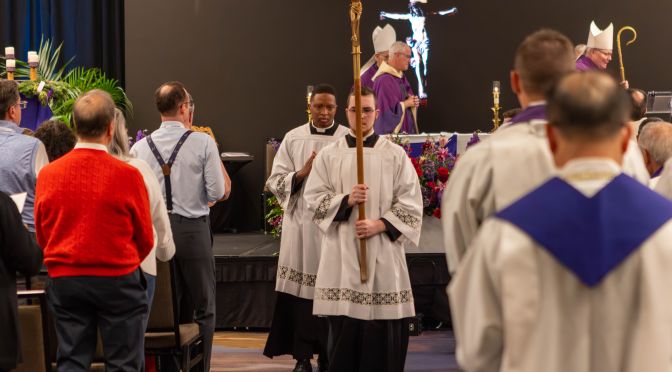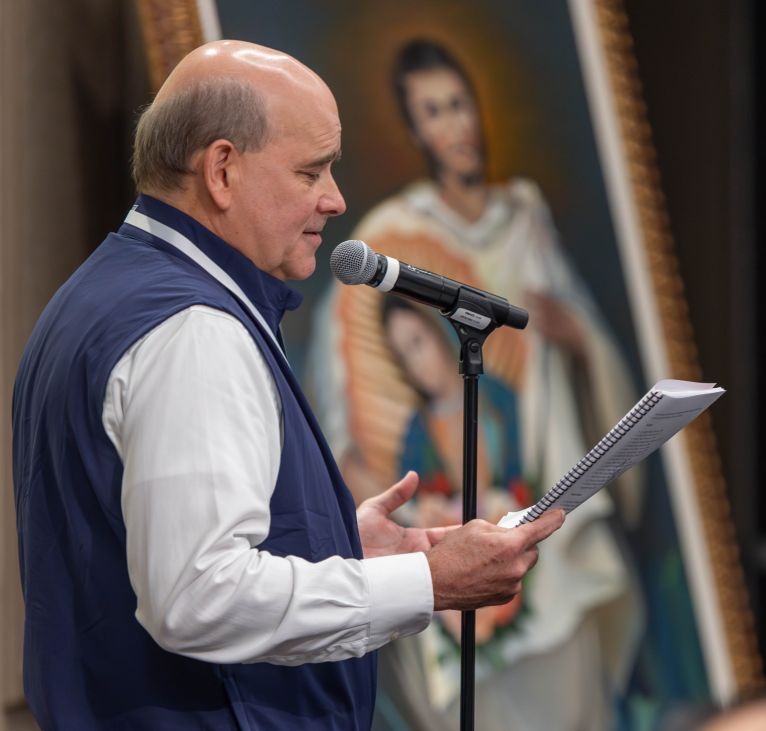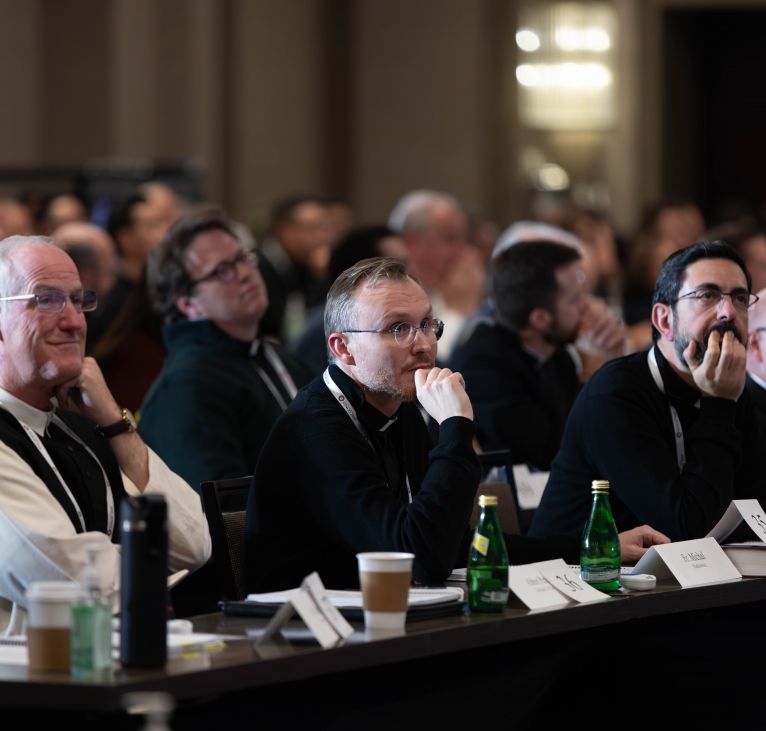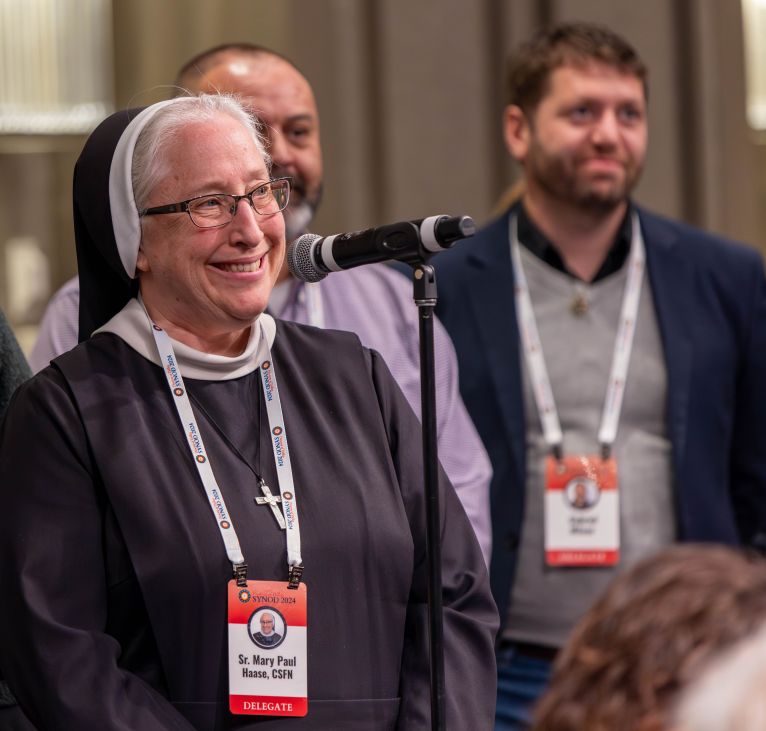Post-Synodal Pastoral Letter for the Diocese of Dallas
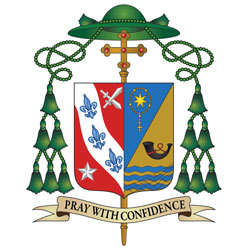
2025 Ash Wednesday Letter
By Bishop Edward J. Burns
Introduction
In my 2021 Ash Wednesday Letter to the Faithful, I called for a Diocesan Synod to help me envision a post-pandemic Church that embraced its apostolic mission and strengthened the Diocese. I knew that the historic pandemic was a time for a historic response. As I wrote in the 2021 letter, a deep renewal must occur: “This is a time of tremendous opportunity. This is not a time for going back to business as usual, but rather forward to fresh initiatives and bold witness to the enduring love of Jesus.”
Having completed four years along this ten-year process for renewal, we have seen that we have a vibrant, growing Diocese that will benefit from this synodal process for decades to come. Now, as you begin your Lenten prayer, fasting, and almsgiving on this Ash Wednesday in 2025, I ask that you keep my discernment and the future work of the Diocese in your intentions.
This is a timely opportunity to identify the present fruits of the Synod in Dallas, the future plans that remain, and the goals of our united prayers, with this first of a small series of letters which will highlight the work and status of the Diocesan Synod in the Diocese of Dallas.

Apostolic Mission
Since 2021, we have asked for the grace of the Holy Spirit and joined together to communicate our experiences, listen in humility, and grow in faith as we prepared for the Synod Assembly. In the thirty listening sessions that preceded the Synod, the nearly 9,000 participants responded with 4,000 pages of comments, listening to one another and sharing their experiences with me. This shared knowledge brought us a more complete understanding of the Lord’s will for us as His people in the Diocese of Dallas, thus beginning this process of spiritual renewal and ecclesial revitalization. It is truly a blessing that so many of the faithful participated in this process.
The Synod Preparatory Commission prayerfully distilled the contributions of listening session attendees into 376 resolutions, which were then organized into the 17 chapters in 5 parts that are listed below. These resolutions served as the subject of the discussions and votes at the Synod Assembly.
Part I – Catechesis and Formation
Chapter 1, Catechesis
Chapter 2, Spiritual Formation
Chapter 3, Schools and Education
Part II – Celebration and Sanctification
Chapter 4, Celebration and Administration of Sacraments and Sacramentals
Chapter 5, Devotions
Chapter 6, Celebration of the Mass and the Eucharist
Part III – Evangelization
Chapter 7, Outreach and Hospitality
Chapter 8, Communications
Part IV – Vocation and Discernment
Chapter 9, Clerical Vocations and Consecrated Life
Chapter 10, Clerical Life, Support, and Formation
Chapter 11, Couples and Marriage
Chapter 12, Employee and Lay Minister Formation
Chapter 13, Community Building and Development
Chapter 14, Accompaniment and Charitable Services
Part V – Administration
Chapter 15, Diocesan Administration
Chapter 16, Parish Administration
Chapter 17, Safe Environment
Each chapter was preceded by a theological introduction that gave a history of the documents and teaching of the Church, as well as insight into how this rose to the level of being discussed by our Assembly. The resolutions were accompanied by a wonderful document that served as a “primer” to help delegates know and understand both the history of the Diocese of Dallas and how we currently operate. I am proud of the work that has gone into these documents and deeply appreciate the gravity, prayerful attitude, and humility with which each of the delegates approached this process.
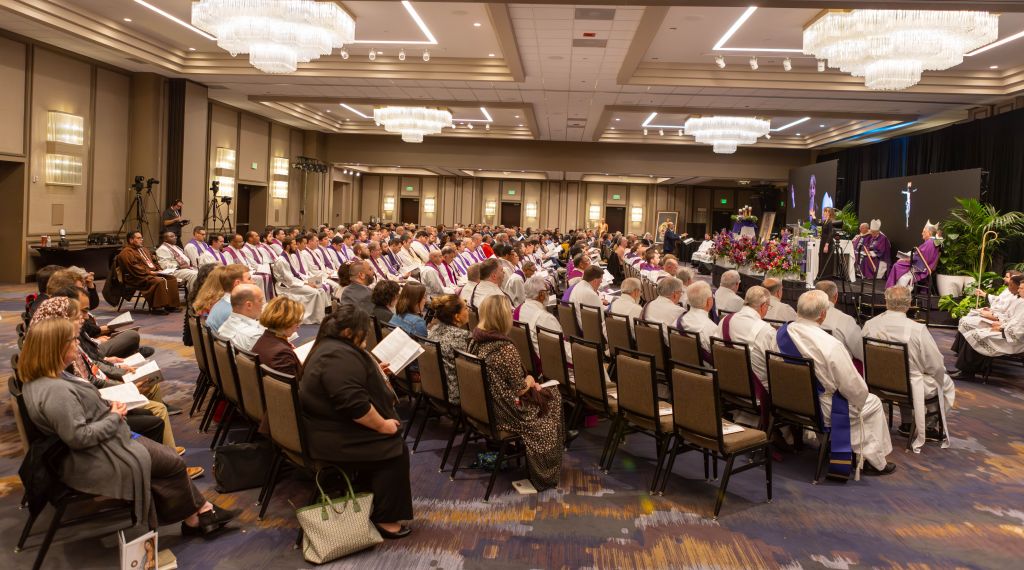
Assembly
During our Synod Assembly from December 1st through 4th, 2024, the 284 delegates remained sequestered with observers and staff at a hotel in Irving. I treasured this time with the flock. This event offered an opportunity for the people of God, representing all corners of this diocese and all walks of life, to come together to pray and discuss important matters for the future of the Diocese. We are blessed with dedicated priests in this Diocese, and 120 of them were present as voting members in this assembly. 19 permanent deacons and 145 laypersons completed the Synod body. Each of these delegates brought a unique perspective to the discussion. It was an invigorating experience that brought forth a deep, rejuvenating hope for our Diocese.
Our schedule over four days was designed to allow for prayer, the celebration of the sacraments, open comments, voting, and camaraderie. Delegates each cast a vote between 0 and 5 to indicate their degree of recommendation or disapproval for each of the 376 resolutions. Their votes were the fruit of three months of discernment with the exact language of resolutions, and delegates were able to give spoken and written feedback on the resolutions in addition to their votes. The delegates together cast tens of thousands of votes over the course of these days, and each contributed to the conversation by sharing their experiences and hopes for the growth of the Diocese.
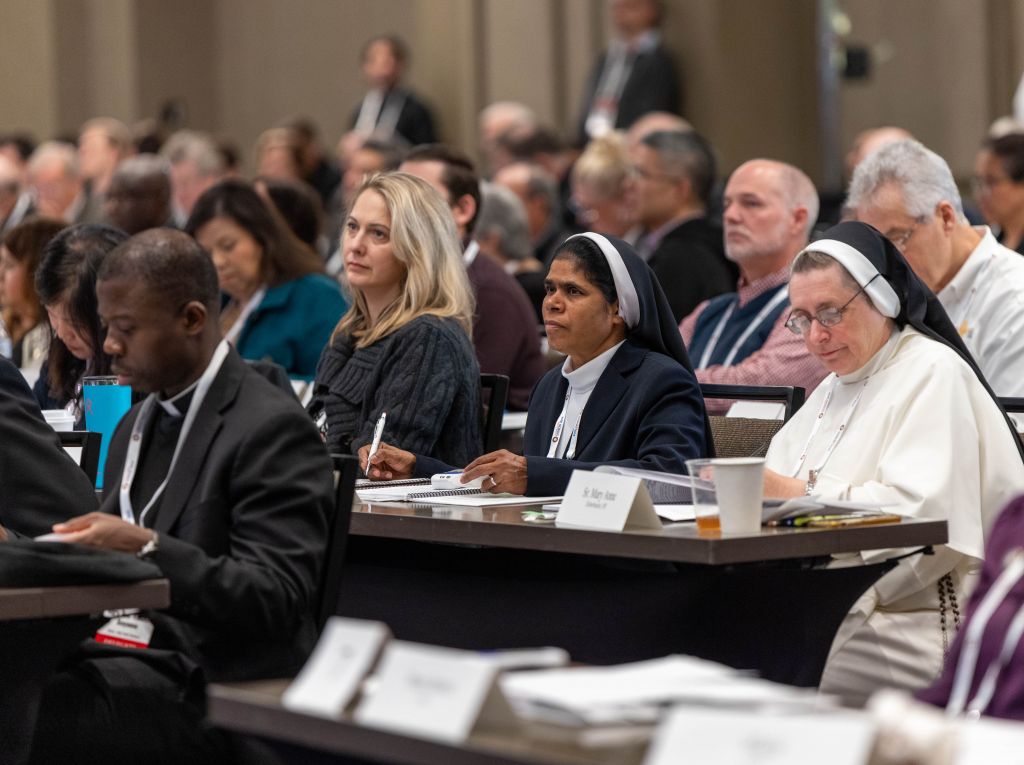
Results
Below, I have highlighted some of the results of these four days of comments, voting, and prioritization. For a longer report that specifically discusses the voting results, please visit www.synod.cathdal.org for English and Spanish copies.
Voting
The voting results offer an insight into the complexity of our Church and our need to continue to listen to the experiences of others as we journey closer to Christ.
Many resolutions voted on were strongly recommended. For example, one resolution asks that parishes offer continuing adult faith formation opportunities for parents and newly received Catholics that align appropriately with life and catechetical stages. This is an example of a resolution that would incorporate our responsibility to be continually formed in the faith through catechesis, the role of parishes as a center of catechesis and community activity, and a way to build community through the sharing of faith within a local parish community. Many hands would be involved in bringing this idea to fruition, so that all might participate more deeply in the life of the Church and continue to grow in holiness and closeness to the Lord.
Another strongly recommended resolution expressed the desire to speak compassionately, openly, and in line with the Church’s magisterium to those with same-sex attraction and those who struggle with gender identity. This is one example of the synodal discussions that touched on our collective responsibility as a Church to act and speak compassionately towards our brothers and sisters who face these challenges.
In the discussion and voting, delegates strongly recommended establishing guidelines for parishes to assess and improve the quality of church acoustics, microphones, and speaker systems, and to offer an appropriately reverent space where the faithful also experience the liturgy in places such as the narthex or cry rooms. Improving this across the Diocese would help all to feel more closely connected to the Word of God and to one another in community.
There was deep discussion and prayerful consideration for each of the 376 vote items presented at the Synod Assembly. I rejoice in the Lord that our Diocese was able to come together in this time to consider these serious items with humility and trust in the goodness of the Lord.
Prioritization
As a separate part of this process, I asked the delegates to recommend priorities by which I might focus our efforts to address each of the varying concerns and areas of growth for the Diocese. The top prioritized resolutions have already begun to help the Implementation Commission as I form the direction of our focus for the coming years. It is not an exhaustive list of what we will accomplish over the course of our synodal process, but it is a good way to begin to understand the mind of the Diocese as guided by the Holy Spirit in this process.
These prioritized resolutions ask that we consider embracing such things as (without any particular order) 1) a culture of vocations, 2) emphasizing teachings on life issues, 3) establishing a real estate task force for new parishes and schools, 4) emphasizing compliance with Safe Environment policies, 5) focusing on the formation and support of clergy, 6) speaking faithfully on same-sex attraction and gender issues, 7) auditing the Tribunal for efficiency, 8) cultivating the prayer lives of the faithful, 9) ensuring that Catholic schools uphold Catholic identity, 10) evaluating existing marriage preparation to improve it, 11) establishing a priest support committee, 12) promoting clergy and religious presence in parishes and schools, 13) identifying resources for the faithful regarding sexual morality, and 14) working to build a culture of hospitality.
These results will continue to inform my discernment for the Diocese. I am sincerely grateful for all of the efforts that have gone into the words and votes shared with me through this process.

What Remains
Lent is a time for us to reflect on our sinfulness and reunite our hearts to God. “The Church, embracing in its bosom sinners, at the same time holy and always in need of being purified, always follows the way of penance and renewal” (Lumen Gentium, paragraph 8). How fitting that I am able to write to you at the beginning of our Lenten season about the prayer, fasting, and almsgiving that we can unite together for our own purification and, by extension, the purification of our Church. “[Mother Church] exhorts her children to purification and renewal so that the sign of Christ may shine more brightly over the face of the earth” (Lumen Gentium, paragraph 15). We know that the work ahead will be plentiful. There will be a place for all to serve the Lord. To that end, our pastoral and strategic plan for the Diocese should be released in December of 2025, which will outline the practical solutions I intend to pursue for the improvement of our Diocese.
Between now and then, I will continue through a period of intentional, spiritual discernment and collaboration about what is included in this plan. All of the synodal process that has occurred, in particular the proceedings of the Synod Assembly, voting, and prioritization results, will guide me in this discernment process. To assist me with this discernment, I have gathered together an Implementation Commission made up of clerics, laity, and staff who will offer perspective on the development of a plan, so that I can consider the appropriate aspects of what should be accomplished in our diocese and when. I ask you to keep me, this discernment, and the Implementation Commission in your continual prayers.
Spiritual Renewal
Thus, what I ask of you is to remain close to the Lord in His sacraments. Attending to one’s relationship with the Lord is the most important element of our lives and can bear much fruit. Spiritual resiliency can be built through a number of ways, and silence is an integral part of this. The silence we cultivate in our lives can lead to a quieter disposition of the heart, openness to the work of the Lord in our lives, and provide respite from the noise of our busy world. We know through our deposit of faith that the Lord is merciful and abundantly generous. “Give thanks to the Lord, for he is good, his mercy endures forever” (PS 118:1).
I also invite you to allow your parish family to become a part of your growing spiritual journey. Confession, Mass, and community life all await our acceptance. I encourage you invest yourself as a part of your parish community for the benefit of others but also for the benefit of yourself. It is in the parish community that the Lord has chosen to purify and strengthen us for the trials of our lives. Allow Him and others to be a part of your suffering, your joys, and this growth. As your shepherd, I ask that we continue to pray and grow together as a Diocese over the coming months. Continue to keep this discernment and growth of the Diocese in your prayers.
In this time of Lenten prayer, fasting, and almsgiving, it is my greatest hope that, through these efforts, each of the faithful in this great Diocese finds the peace and grace that the Lord wishes to grant us in our spiritual journey with Him to the Pascal mysteries of His suffering, death, and resurrection.
Through the intercession of Our Lady of Guadalupe, may the Lord continue to bless you, your loved ones, and the Diocese of Dallas.
Faithfully yours in Christ,
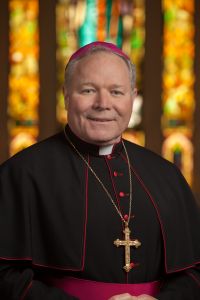
Most Reverend Edward J. Burns
Bishop of Dallas
